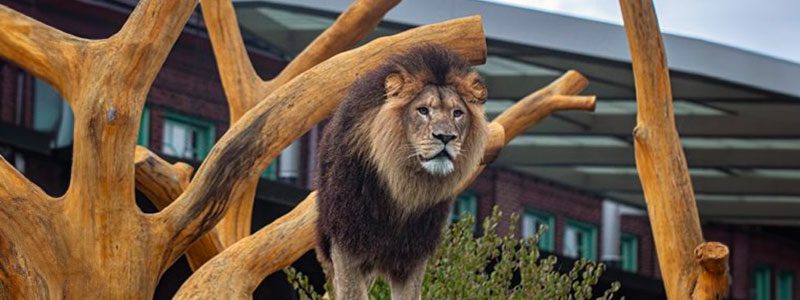
Dwarf Mongoose
Regenstein Small Mammal-Reptile House
Did You Know?
- Dwarf mongooses are the smallest species of mongoose as well as the smallest African carnivore.
- Their packs are matrilineal; females are dominant over males in every age class. The highest-ranked female is usually an older female, and the second ranking is her mate. The pair is monogamous and the only breeders in the group.
- Within packs, non-dominant adults and new arrivals clean, carry, and feed the young. They may even nurse them.
Don’t See the Animals?
Why aren’t animals visible at all times? To promote positive animal welfare, we provide animals with choices. They can choose to spend time in areas that are out of public view.

Take an Animal Home with You
Overview
Scientific Name: Helogale parvula
Class: Mammals
Diet: Insects, including beetles and grasshoppers (also spiders, scorpions, small vertebrates, eggs, and fruit)
Range: Eastern and southern Africa
Endangered Status: Least Concern
More Information
Dwarf mongooses are between 7–10 inches long with a tail that can reach 8 inches long. Males are slightly larger than females and weigh a little over 11 ounces. These animals have a smooth speckled brown or black coat with a darker tail and legs, plus lighter undersides. They prefer territories with termite mounds or rock crevices and woody vegetation. Dwarf mongooses have been known to form beneficial relationships with other species, like hornbills—they look out for shared predators and work together to find food.
They live in packs averaging 12 mongooses, although groups can have as many as 32 members. They get sufficient moisture through their diet but will drink if water is available. The dominant female dwarf mongoose gives birth between November and May; she may have multiple litters in a year, each averaging four infants. The young nurse for 45 days and do not leave their pack. In fact, packs do not split unless the dominant female dies.
